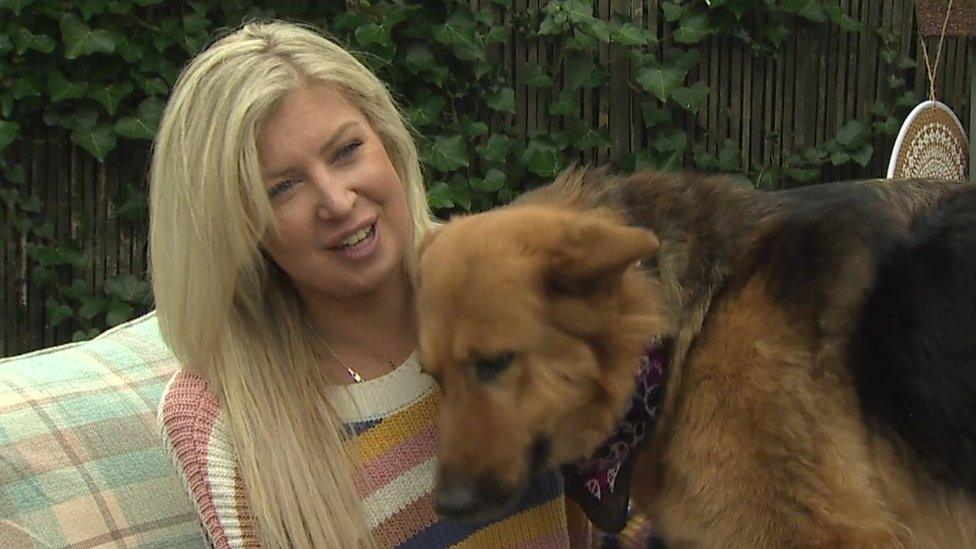Women with disabilities 'groped and not taken seriously'
- Published
Women with disabilities "harassed and ignored"
"Women ask if I need help and offer an arm to direct me, men have taken the opposite arm and groped me."
Angharad Paget-Jones, 27, is severely visually impaired and said some men have taken advantage of her under the guise of being helpful.
ONS figures from 2018 show disabled women were almost twice as likely to have experienced any sexual assault, external than non-disabled women.
Ms Paget-Jones said better education was needed to stop this happening.
'You could just grab her, she can't see you anyway'
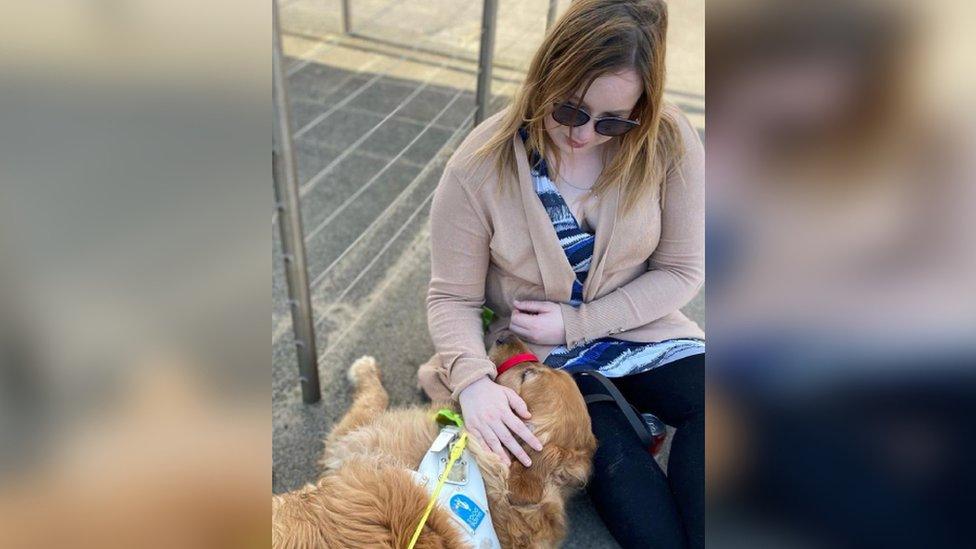
Angharad Paget-Jones said she has been touched without consent on multiple occasions
Ms Paget-Jones, from Port Talbot, said she had been grabbed in public multiple times while out with her guide dog Tudor, which has left her "feeling scared".
She recalled one incident when she could hear a group of boys saying, "you could just grab her, she can't see you anyway", which led her to divert into a nearby shop for safety.
"Disabled women aren't valued. We're just seen as vulnerable, but we're not. It's society that makes us vulnerable," said Ms Paget-Jones.
She wants better education about how people with disabilities are targeted and better support for those who do report issues, as she said there had been times when she was not taken seriously.
"I reported an incident to a security officer in a well-known train station in London and he just told me my dress shouldn't have been so low cut."
In order to raise awareness Angharad has been using the hashtag #JustAskDontGrab on social media.
The hashtag and campaign, which encourages people to ask people with disabilities whether they actually need help, was started by visually impaired activist and campaigner Dr Amy Kavanagh in 2018.
Angharad said the response to her tweets had been positive, however "you always get bad with good" and "some men have taken offence".
One man told her, "if you don't want help, we'll just let you die", she said.
'He knew I couldn't go anywhere'
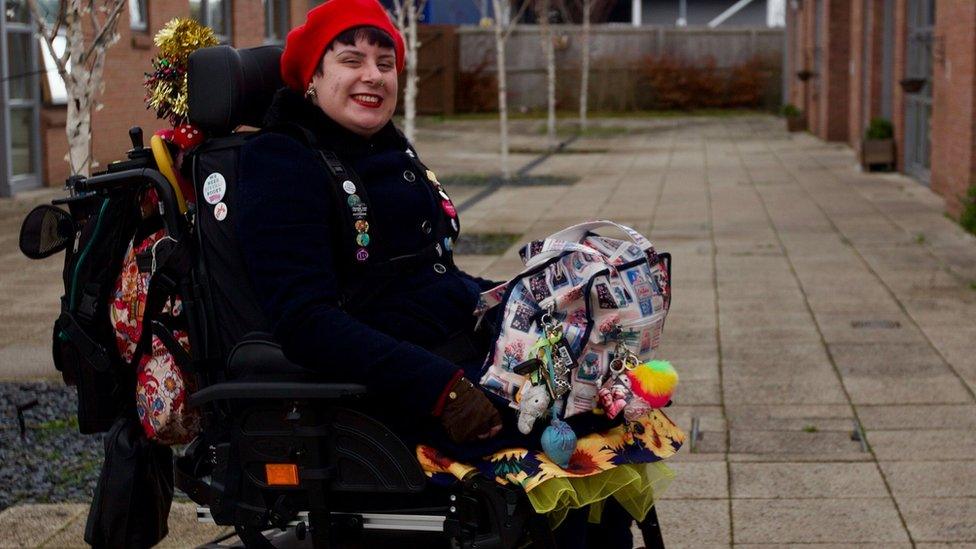
Amy-Claire Davies said men behave differently towards her when she is out with a male carer
Amy-Claire Davies, 26, from Swansea, said she had had similar experiences.
She is a palliative care patient and has seizures from epilepsy along with severe chronic pain.
"I was in a nightclub with some friends in a manual wheelchair and a guy kept coming over and trying to interact with me. I very clearly kept saying 'no, go away'," she said.
"He waited until my friends moved away. He knew I couldn't go anywhere. He came over and stuck his hand down my shirt."
Miss Davies also said she had experienced being cat-called and shouted at in the street when she has been with a female carer, but not when she is with a male carer, and being disabled can encourage men to act inappropriately.
"When you have a mobility aid or something that people can see that makes you look more disabled, I think there are some people who will see you as more vulnerable and will take advantage of that," she said.
She added that men have a "very different experience" of being out in public even if they also have disabilities.
"A male friend of mine said after a night out why didn't I just wheel home in my chair rather than get a taxi.
"It was then that it kind of blew my mind of just how different an experience he has to me, I would never go out at night alone.
"We need to listen to the voices of women in Wales to tackle this problem."
In the three years ending March 2018, disabled women were almost twice as likely to have experienced any sexual assault in the last year (5.7%) than non-disabled women (3%).
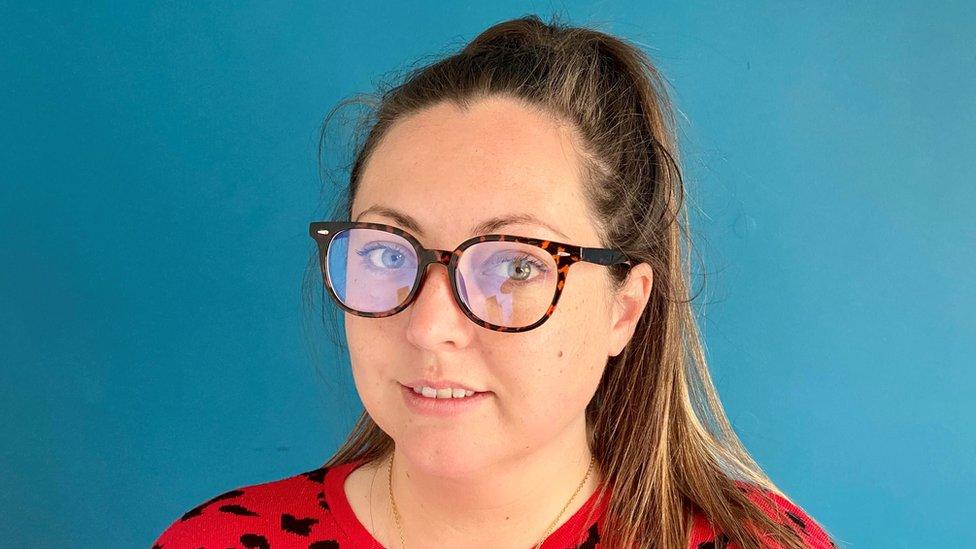
Charlotte Archibald, from Welsh Women's Aid, said women with disabilities were likely to experience "more frequent sexual harassment"
Charlotte Archibald, from Welsh Women's Aid, said research by the charity showed those who are disabled have a higher chance of being targeted and it was "really important harassment and abuse is talked about in order to change these incidents".
She said: "We found that women in Wales with a disability are more likely to experience more frequent sexual harassment than non-disabled women.
"I think it's important that we understand that no woman experiences sexual harassment in the same way and that these experiences are often intertwined with other forms of abuse and discrimination."
After hearing the experiences of Angharad and Amy-Claire, Ms Archibald said: "I think it's horrible to hear that's the experience of these women, but sadly it's not also unexpected.
"The experiences of sexual harassment are very different for women who have a disability.
"They don't often have the mechanisms to remove themselves from those situations that another woman might have, and that's often overlooked."
She said that in order to make a difference, "It's important that we really listen to the voices of disabled women in Wales and listen to their experiences and make sure that we're taking all of that on board and using that as a way to improve safety for women and Wales".
- Published22 February 2019
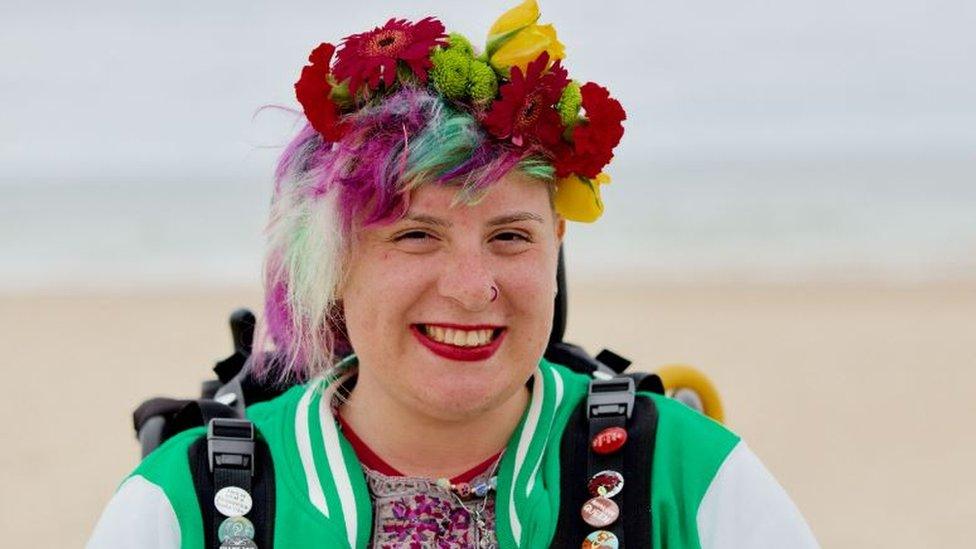
- Published14 December 2020
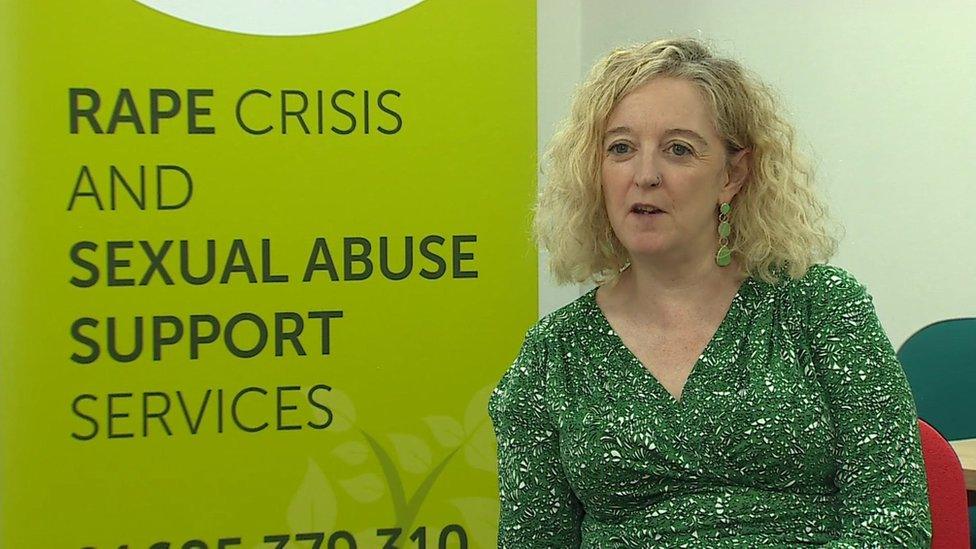
- Published7 April 2021
